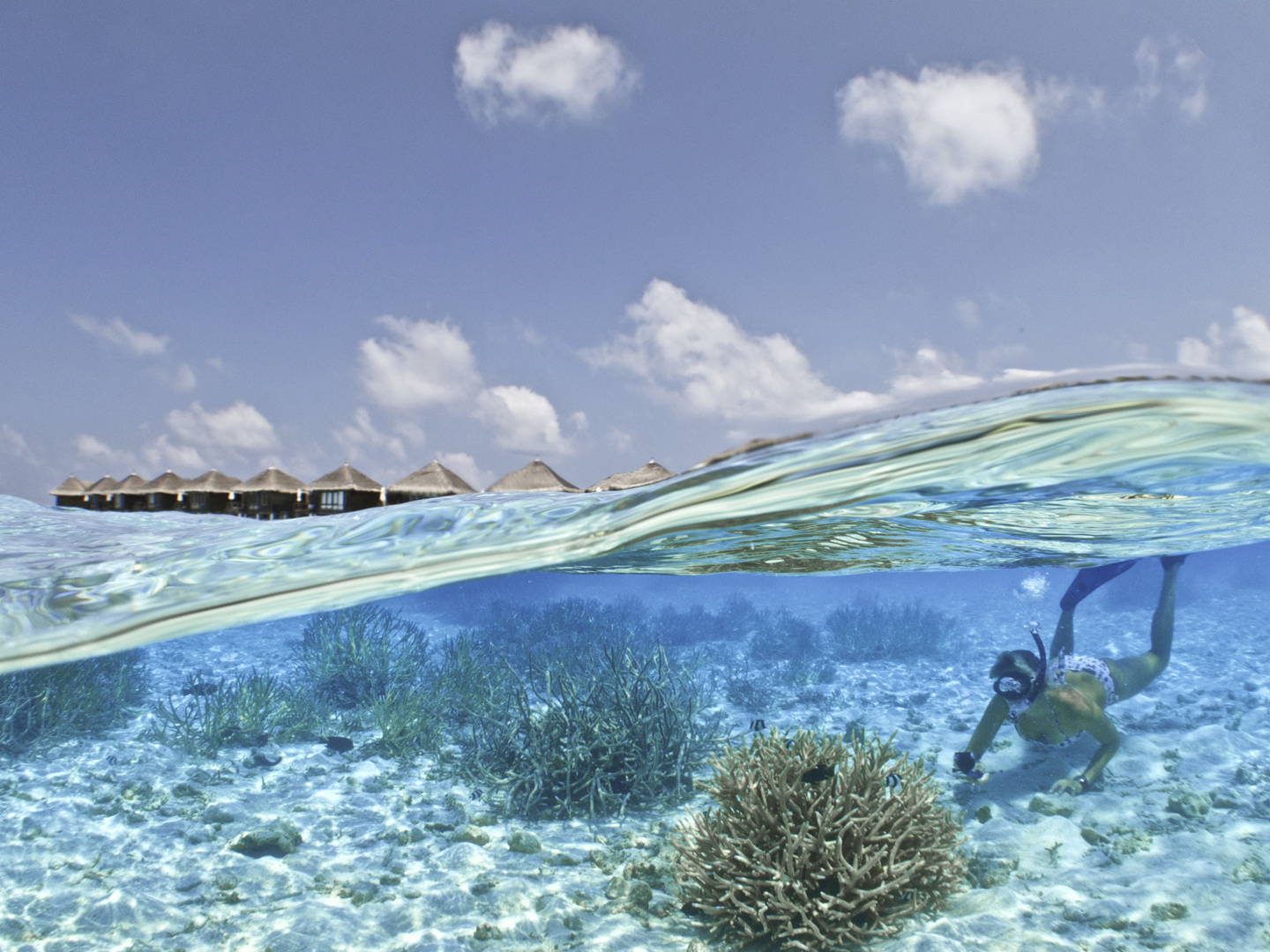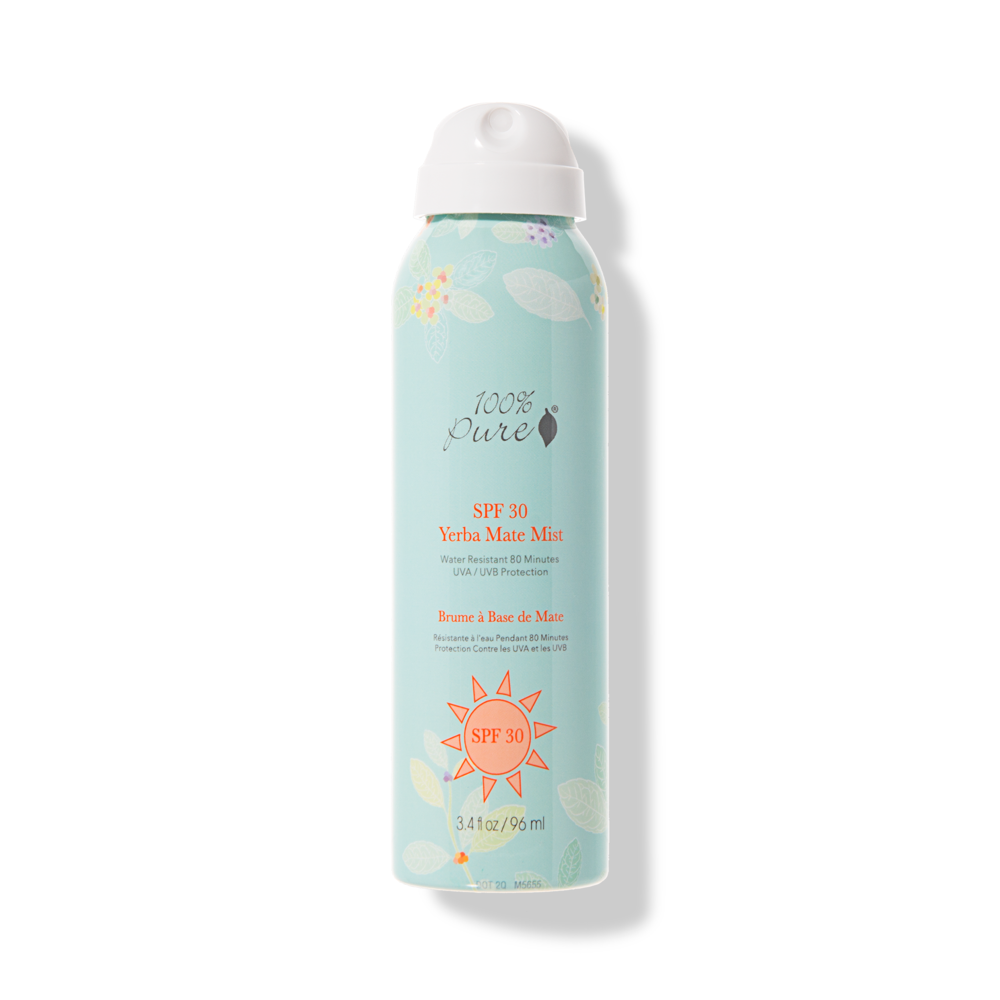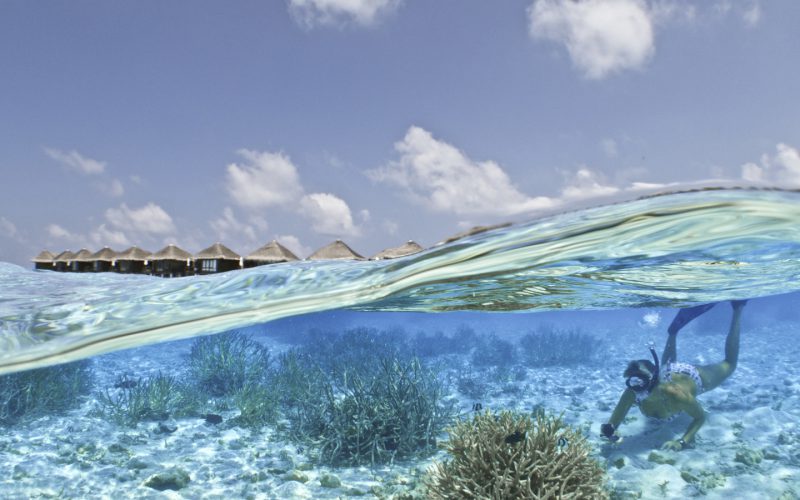It's way past time to ditch those chemical sunscreens, and double check your mineral sunscreen too!
 Cancer risk isn’t the only reason you should be considering a new sunscreen. We’ve talked about how synthetic chemicals in conventional sunscreens can cause skin irritation and hormone disruption. But what happens when your sunscreen washes off at the beach and hits the water? If you haven’t ever given this a second thought, chances are it’s doing irreversible harm to coral. Here’s why reef safe sunscreens need to be the new mainstream, and the best ones to keep you and the seas protected all year long.
Cancer risk isn’t the only reason you should be considering a new sunscreen. We’ve talked about how synthetic chemicals in conventional sunscreens can cause skin irritation and hormone disruption. But what happens when your sunscreen washes off at the beach and hits the water? If you haven’t ever given this a second thought, chances are it’s doing irreversible harm to coral. Here’s why reef safe sunscreens need to be the new mainstream, and the best ones to keep you and the seas protected all year long.
Why reef safe sunscreen?
Ingredients oxybenzone, octinoxate, avobenzone, octisalate, octocrylene, and homosalate have been popular sunscreen ingredients for years. They’re usually found in chemical sunscreens, which work by causing a chemical reaction between the ingredients and UV rays: the chemicals absorb the UV rays, convert them into heat, and release it from your skin.
But it turns out these active ingredients may do more harm than benefit to your health. Some of these chemicals have been found to penetrate skin and affect hormone function, compromising even reproductive health.
It makes sense, then, that other living beings would be affected as well. We’ve known about their possible negative side effects on human health for quite a while. More recent research, however, is pointing to devastating consequences on marine life as well.
 How sunscreen hurts coral reefs
How sunscreen hurts coral reefs
A whopping 14,000 tons of sunscreen is estimated to be deposited in oceans annually, along with a dangerous dose of the chemicals in them. Sunscreen chemicals can accumulate in sea coral tissue, leading to deformities, damaged DNA, coral bleaching, and even death. This has lead to scientists and even governments calling for a ban on the use of these sunscreen ingredients. It’s not safe to just avoid using these deadly products near the beach. They can still enter our water systems and leach into the ocean.
As of July 2018, Hawaii has banned the sale of sunscreens with oxybenzone and octinoxate. It’s important to note that other chemicals are just as dangerous to the environment. A study found that octocrylene might affect brain and liver development in fish, and the evidence is still building up as more studies are being done. By that point, though, it’ll be too late for the marine wildlife that have already perished.
Are mineral sunscreens reef safe?
Even mineral-based sunscreens deserve further scrutiny. Mineral sunscreens work more as a physical sunscreen in the sense that they use the active ingredients zinc oxide or titanium oxide to physically block UV rays from your skin. That makes sense, but only if the mineral particles are large enough to not penetrate your skin and cause cancer. That’s why you should look for non-nano zinc oxide and titanium oxide.
Coral reefs aren’t safe from sunscreen products with nano particles either. At such a small size, these mineral particles are able to accumulate in corals too and cause irreversible damage to their health. When in doubt, always reach out to the sunscreen brand to double check whether the minerals they use contain nanoparticles.
 How to choose reef safe sunscreens
How to choose reef safe sunscreens
Your first step in screening your next new sunscreen is to look out for the six active ingredients oxybenzone, octinoxate, avobenzone, octisalate, octocrylene, and homosalate. Using them is an absolute no-no to both coral reefs and your own health.
That means you should only use a sunscreen that has either titanium oxide, zinc oxide, or a mix of the two as the active ingredients. These two ingredients are the only ones that have been proposed by the FDA to be safe and effective, and a major overhaul of ingredient research needs to be done on other possible offenders.
Your next step might be a little tricky: make sure the formula does not contain any nanoparticles. This might require reaching out to a brand for confirmation. Finally, you’ll need to do a final check for any more harmful ingredients. For example, phthalates that are commonly used in cosmetics can end up in marine wildlife and cause endocrine disruption, and even end up back on our dinner plates.
Staggering a bit from all these heartbreaking statistics? We’ve compiled a list of the best reef safe sunscreens that do their job to keep your skin protected from the sun at the beach, without polluting the seas with toxic chemicals and minerals.
Best reef safe sunscreens
All Good SPF 30 Sport Sunscreen Lotion from All Good
Going for a beach day in the summer? You’ll need sun protection from head to toe. This creamy formula offers broad spectrum protection and is water resistant too for 80 minutes. It contains only non-nano zinc as its active ingredient. If you’re looking to ease sunburned skin, you’ll love the ultra soothing aloe, calendula, and green tea too.
Face + Body 30+ Tube from Raw Elements
Have super sensitive skin? Keep things simple with this plant-based formula that protects and nourishes all day long. The sunflower oil and hemp seed oil are fast absorbing and won’t clog up pores and oily skin. Use this water resistant sunscreen for your beach getaway or any seriously sweaty outdoor activity!
 Yerba Mate Mist SPF 30 from 100% Pure
Yerba Mate Mist SPF 30 from 100% Pure
It’s true, you can still have your luxuriously creamy self care and get reef safe sun protection at the same time! This simple spray-on SPF is ultra hydrating and dreamy light on skin, while imparting a smooth matte finish onto skin.
SPF 30 Sport Sunscreen from Juice Beauty
You don’t have to compromise your own skin health by choosing a reef safe formula. This sport sunscreen is designed to protect all skin types while also feeding skin with essential vitamins for true lasting protection. Shield your skin with non-nano zinc oxide, while pampering it with vitamins E and C for all-around protection even after you’re out of the sun.
Fragrance Free Organic Sunscreen – SPF 32 from Nurture My Body
Sick of that ol’ greasy sunscreen smell? Luckily there’s a fragrance-free formula that’s reef safe too. This non-comedogenic sunscreen is easily blended into skin, and is safe to use for babies and young children too.
 How to apply a reef safe sunscreen
How to apply a reef safe sunscreen
- Always ensure your skin is freshly cleansed first so your sunscreen can evenly cover your skin.
- Gently pat and press the sunscreen onto your skin. Depending on the consistency of the formula, you may have to apply anywhere from a quarter-sized amount to a tablespoon of sunscreen for your face, plus an extra ounce for your whole body. Follow the instructions on the packaging for the most accuracy.
- Don’t mix your sunscreen with other products! Sure, SPF makeup sounds great and all, but it isn’t usually designed to cover your entire skin evenly. Always apply a layer of sunscreen first before following with makeup.
- Re-apply your sunscreen at least every 2 hours, and possibly more often if you’re heavily sweating or swimming, or accidentally wipe your sunscreen off. Remember, the minerals need to be physically covering your skin to be protecting you!
Switching to reef safe sunscreens are a big and easy step you can take towards protecting the environment against our toxic consumer byproducts, but it isn’t the end of the picture. That’s why we always recommend to sticking to natural ingredients that are safe for your body and for the environment, even when they’re not quite the mainstream. Because who knows what synthetic chemical could end up as the new oxybenzone with its bad rap, but only years after the damage is done. By combining our love for plant-based formulas with smart and safe science, we’re always on the lookout for high-performing products that are better for the planet as a whole.



